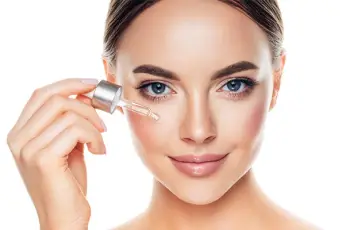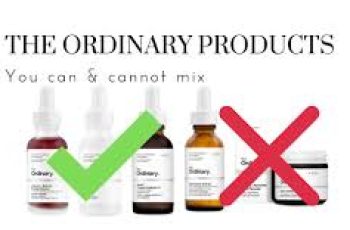
How To Get Rid Of Dark Spots On Black Skin: An Expert-Backed Guide
Dark spots on Black skin are a common and frustrating concern, especially for those with richly pigmented complexions that fall into Fitzpatrick Skin Types 4, 5, and 6.
These dark spots often appear after acne, bug bites, rashes, or even minor scrapes, showing up as stubborn discoloration that lingers long after the initial inflammation fades.
This uneven skin pigmentation is known as post-inflammatory hyperpigmentation (PIH), and it’s especially visible on deeper skin tones where melanin production is naturally higher.
After an injury or irritation, melanocytes—the cells responsible for pigment—go into overdrive, leaving dark patches that can take months or even years to fade without treatment.
Whether your dark spots are due to acne, eczema, razor bumps, sun exposure, or harsh products, the root cause is typically inflammation triggering excess melanin production.
Even everyday habits like popping pimples, not wearing sunscreen, or over-exfoliating can worsen these spots, so prevention is just as important as treatment.
Let’s dive into dermatologist-recommended solutions to help fade dark spots on Black skin, restore an even tone, and prevent future discoloration from developing.
The first step in treating hyperpigmentation is understanding your skin’s unique characteristics and tailoring your skincare routine to support its needs.
Why Are Dark Spots More Common On Black Skin?
Melanin, the pigment that gives skin its color, is made by cells called melanocytes located in the bottom layer of the epidermis.
While everyone has the same number of melanocytes, Black and Brown skin types produce more melanin overall, resulting in richer skin tones.
When these melanocytes become overstimulated due to injury, inflammation, or sun exposure, they produce more melanin than usual, causing localized dark patches.
This excess pigment appears as flat brown, gray, or black spots—often in areas where the skin has been irritated, inflamed, or damaged in the past.
Unfortunately, darker skin tones are more prone to developing PIH due to higher baseline melanin levels, which respond more dramatically to inflammation.
What Triggers These Dark Spots?
The most common causes include acne, eczema, ingrown hairs, allergic reactions, insect bites, and friction from tight clothing or razors.
Additionally, exposure to ultraviolet (UV) rays from the sun or blue light from screens can also trigger melanin production, even if no visible damage occurs.
It’s also important to recognize that darker skin often doesn’t show redness the same way lighter skin does, so signs of inflammation can go unnoticed.
This means you might not realize your skin is reacting to something until the pigmentation has already set in, making proactive care essential.
Even skincare products that sting or tingle may be causing invisible irritation, contributing to dark spot formation over time.
Should You Use Lasers On Dark Skin?
While laser treatments are popular for hyperpigmentation on fair skin, they carry higher risks for people with Black or Brown skin.
Lasers target melanin, and because melanin is more abundant in dark skin, the treatment can sometimes cause burns, hypopigmentation, or worsened discoloration.
Instead, dermatologists recommend chemical peels, topical treatments, or non-ablative lasers performed only by experts trained in treating skin of color.
To stay safe, always seek care from a dermatologist affiliated with the Skin of Color Society or someone experienced in treating Fitzpatrick Skin Types 4–6.
For most people, consistent skincare with gentle, pigment-targeting ingredients is the safest and most effective way to treat dark spots.
How To Choose Safe Skin Lightening Products
Skin lightening products can work wonders when used correctly, but they must be applied carefully to avoid creating new problems.
The goal is not to bleach or lighten your entire face—only to fade the darkened areas so your overall skin tone appears more even.
Apply your dark spot corrector with a cotton swab or fingertip directly to the affected spot, avoiding the surrounding skin.
Getting the product on healthy skin can cause it to lighten too, resulting in a “halo” effect that draws more attention to the problem area.
Look for treatments containing tyrosinase inhibitors, retinoids, antioxidants like Vitamin C, exfoliating acids, and calming anti-inflammatory agents.
What Ingredients Fade Dark Spots Safely?
Here are the most effective types of ingredients for fading dark spots on Black skin when used in combination:
Tyrosinase Inhibitors like kojic acid, tranexamic acid, azelaic acid, and hydroquinone help block melanin production at the source.
Retinoids, including retinol and tretinoin, encourage cell turnover and help fade pigment trapped in the top layers of skin.
Exfoliating Acids such as glycolic, lactic, or mandelic acid help remove dead skin cells and speed up the fading process.
Vitamin C, a powerful antioxidant, neutralizes free radicals and supports collagen while helping brighten existing discoloration.
Niacinamide reduces inflammation, prevents pigment transfer between skin cells, and strengthens the skin barrier for long-term prevention.
A Step-By-Step Skincare Routine To Treat Dark Spots
An effective skincare routine for Black skin should include targeted ingredients while protecting and calming the skin to prevent further irritation.
Here’s a simple but powerful routine you can adapt to your skin type and sensitivity level:
Cleanser – Start with a gentle exfoliating cleanser that includes AHA/BHAs like glycolic or salicylic acid to prep the skin.
This removes dead cells, unclogs pores, and helps your treatment products absorb more effectively.
Eye Cream – Apply a hydrating eye cream next, especially if you’re using brightening agents, to protect the delicate eye area from accidental exposure.
Dark Spot Treatment – Apply your targeted serum or cream directly on dark spots only, using a cotton swab or clean finger to avoid spreading it beyond the affected area.
Moisturizer – Use a hydrating, non-comedogenic moisturizer to seal in treatment ingredients and keep skin calm and protected.
Sunscreen – Never skip sunscreen, even if you have deep skin!
UV rays and even indoor blue light can worsen pigmentation.
Opt for a tinted SPF with iron oxides to block both UV and visible light.
At night, swap your sunscreen for a retinoid to boost cell turnover and enhance your skin’s natural fading process.
Best Retinoid Products for Hyperpigmentation on Black Skin
Retinoids are gold-standard treatments for acne, wrinkles, and dark spots—but they must be introduced gradually to avoid irritation.
Start by using them 2–3 nights a week and work up to nightly use as tolerated.
Here are a few dermatologist-recommended options to consider:
Replenix Retinol 2X Regenerate Dry Serum
SkinCeuticals Retinol 0.3 Anti-Aging Cream
La Roche-Posay Redermic R Anti-Aging Treatment
PCA Skin Retinol Treatment for Sensitive Skin
Should You Take Breaks From Skin Lightening Products?
Yes!Your skin can develop tolerance to brightening ingredients over time, especially hydroquinone.
Take a break every 12–16 weeks and switch to Vitamin C during your off-cycle.
This helps maintain results and prevents side effects like rebound hyperpigmentation or skin thinning.
What Are The Best Vitamin C Serums For Dark Spots?
Vitamin C serums are great during your break from active lighteners and also work well as part of your daily morning routine.
They brighten skin, protect against UV damage, and fade existing pigmentation.
Top-rated options include:
Obagi-C FX Clarifying Serum
La Roche-Posay Vitamin C Serum
ISDIN Flavo-C and Melatonik Night Serum
CeraVe Skin Renewing Vitamin C Serum
Use these serums in the morning after cleansing and before sunscreen for maximum protection and brightening benefits.
Are Diet and Supplements Helpful for Hyperpigmentation?
Yes, your lifestyle and nutrition play a big role in skin clarity and melanin regulation.
A diet rich in anti-inflammatory foods like berries, leafy greens, omega-3 fatty acids, and green tea can reduce internal inflammation.
Supplements like Vitamin C, Vitamin E, and glutathione may support skin tone balance from the inside out, especially when paired with a great topical routine.
Reducing sugar, dairy, and high-glycemic foods may also improve acne-related pigmentation over time.
Don’t Forget: Sunscreen Is Non-Negotiable
Many people with deeper skin tones assume sunscreen isn’t necessary—but that’s a dangerous myth.
Sunlight and visible light from phones, TVs, and laptops still stimulate melanin and worsen dark spots.
Daily SPF of 30 or higher is critical to both treating and preventing hyperpigmentation.
Tinted mineral sunscreens with iron oxides offer extra protection and are more cosmetically elegant for darker skin tones.
In Summary: Clearer Skin Starts With Consistency
Treating dark spots on Black skin takes patience, consistency, and a gentle, personalized routine that works with—not against—your melanin.
Avoid harsh treatments like lasers unless supervised by a skin of color expert, and instead focus on targeted serums, gentle exfoliation, and daily sun protection.
Take the Skin Type Quiz to find your Baumann Skin Type and get a regimen tailored to your unique skin needs, concerns, and sensitivities.
The journey to even-toned, radiant skin is gradual, but with the right tools and habits, long-term transformation is not only possible—it’s within reach.


